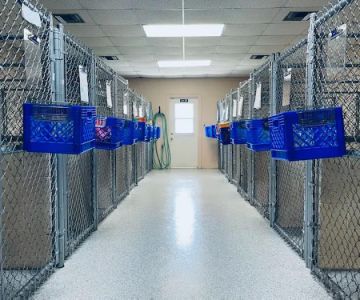Do Veterinary Jobs Drug Test? Understanding Hiring Policies
If you're considering a career in veterinary medicine, you may be wondering about the hiring practices and whether drug testing is a part of the process. As someone who has been in the veterinary field for several years, I can tell you that the answer varies depending on the employer, location, and specific role. However, it’s essential to understand the general trends and expectations when it comes to drug testing for veterinary jobs. In this article, I’ll explore whether or not veterinary clinics conduct drug tests and why it’s an important consideration for both employers and employees.
1. Why Do Employers in the Veterinary Industry Drug Test?
The veterinary field is unique in many ways, and one of those ways is how employers approach drug testing. Veterinary professionals, including veterinarians, technicians, and support staff, often deal with animals, medications, and sometimes high-stress situations. The reason for drug testing in this industry largely revolves around ensuring the safety and well-being of both the animals and the staff. Employers want to ensure that their employees are capable of handling the responsibilities and making sound decisions in a potentially high-risk environment.
In addition to safety, drug testing can also be a way for employers to maintain a professional work environment. Many veterinary clinics and hospitals require drug testing to ensure their employees are fully focused and alert during work hours, as animal care can require quick decision-making and careful handling.
2. Drug Testing in Veterinary Clinics
When it comes to veterinary clinics specifically, the need for drug testing can depend on the type of practice. For example, larger veterinary hospitals or those that provide emergency services may be more likely to conduct drug tests as part of the hiring process. This is because of the nature of the work, where quick and accurate decision-making can be a matter of life and death for an animal. Drug testing ensures that the staff is physically and mentally able to provide the best care possible for their patients.
On the other hand, smaller, private veterinary practices may have different policies. Some may not require drug testing, while others may consider it part of their standard hiring process, especially if the clinic handles controlled substances or has a high volume of procedures.
3. Common Types of Drug Tests for Veterinary Employees
If a veterinary clinic does choose to drug test, there are a few common types of tests they might use. These include urine tests, hair tests, and saliva tests, with urine tests being the most common. These tests can detect a wide range of substances, including alcohol, marijuana, opioids, and other drugs that could impair an employee’s ability to perform their duties effectively.
For veterinary professionals who are responsible for handling medications and controlled substances, it is crucial to be aware that failing a drug test could disqualify them from certain roles. This is particularly true for veterinarians or technicians who handle narcotics or anesthesia, as these substances are strictly regulated. Drug testing ensures that the individual is trustworthy and able to comply with industry regulations.
4. How Does Drug Testing Affect Veterinary Job Seekers?
For potential job seekers in the veterinary field, understanding the drug testing policies of different employers is crucial. Some people may worry about whether drug testing will disqualify them from certain roles, especially if they are in recovery from addiction or use substances for medical reasons. It's important to note that, depending on the state and employer, certain legal protections may exist for individuals in these situations, such as the Americans with Disabilities Act (ADA) or medical marijuana laws.
However, in general, it’s wise to be prepared for drug testing if you’re applying for a job in a veterinary clinic. If you’re concerned about drug testing, consider discussing your situation with the employer beforehand, especially if you are taking prescription medication or have a history of substance use. Being transparent and understanding the employer’s policies can help alleviate any stress surrounding the hiring process.
5. What to Expect in the Hiring Process at Veterinary Clinics
When applying for a job at a veterinary clinic, you can expect a similar hiring process to other industries, with some specific differences. Generally, the process will include submitting an application, completing an interview, and possibly undergoing a background check. If the clinic requires drug testing, you will likely be informed early in the hiring process and may be asked to complete a drug test after your interview and before you receive a job offer.
It’s important to know that veterinary employers will often perform background checks as well. These checks might include criminal history, professional license verification (if applicable), and other information related to the potential employee’s qualifications and trustworthiness. Drug testing is typically part of this broader vetting process.
6. How Can You Prepare for Drug Testing in Veterinary Jobs?
Preparing for drug testing in veterinary jobs is similar to preparing for drug tests in any other field. If you’re concerned about passing a drug test, the best advice is to avoid the use of substances that could impair your ability to work and to be mindful of the medications you take. If you are taking prescription medications, make sure to inform the employer and provide them with documentation from your healthcare provider as necessary.
If you're someone who has a history of substance use or is in recovery, it might be helpful to seek guidance from a counselor or healthcare provider about how to navigate drug testing policies and ensure you’re fully prepared for the process. Being proactive and transparent can make a significant difference in how the process unfolds.
Conclusion: Navigating Drug Testing in Veterinary Careers
Understanding the drug testing policies in veterinary jobs is an essential part of preparing for your career in the field. While policies can vary by employer and location, knowing that drug testing is often a part of the hiring process can help you plan and prepare accordingly. Whether you’re a job seeker or already working in the veterinary field, it’s important to be aware of the implications of drug testing, stay informed about employer policies, and take necessary steps to ensure your readiness for the hiring process.
Are you interested in pursuing a veterinary career? If so, it’s essential to consider the drug testing policies of the clinics or hospitals you’re applying to. Be prepared, stay informed, and take proactive steps to ensure a smooth application process. Best of luck on your journey to becoming a veterinary professional!











